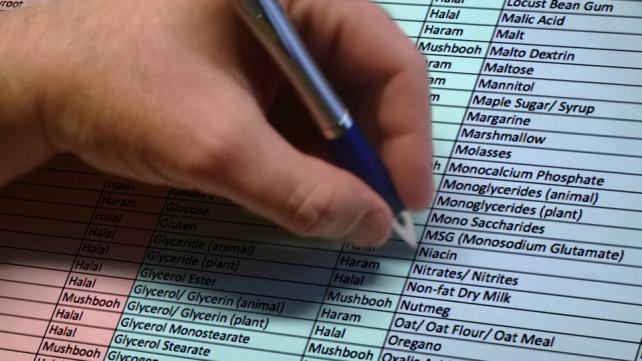
Due to the complexity of tracing the source of various ingredients of which a food or a drink is made up of, many halal conscious Muslim consumers look for a list of grocery items that would facilitate them selecting halal items for consumption. A few lists and some books enumerating Halal/Haram status of items for Muslim consumption have been in circulation amongst the Muslims in the USA.
While the intentions of the compilers of such lists/books cannot be doubted; the fact remains that such list/books become out dated soon after their publication. The products researched today enjoying the halal status may change anytime to haram upon the inclusion of one, two or many haram ingredients due to formulation change and/or for economic consideration.
In absence of any understanding and/or contract with the manufacturer, haram ingredients find their way into the so called halal items without any notice to the Muslim consumers. The manufacturer is obligated to list the name of ingredients of an item on the label, but he is not obligated to include only halal ingredients. Thus a product included under Halal category in the list or book today may become haram tomorrow and yet Muslims continue to buy and consume such (haram) products (assuming them halal according to the list or book).
There are 5.5 million Jews in the USA, and an estimated 16% Jewish households follow kosher guidelines. Nonetheless, there are more than 23,000 items that are certified Kosher with Kosher symbol on them for convenience. There are more than eight million Muslims in the USA and an estimated 75% of the Muslim households follow halal guidelines in one form or other.
Because the Muslim consumers have failed to exert pressure on the manufacturer, the term Halal is rather unknown, leave alone the compliance of Halal standards. With the ready made list or book of Halal/Haram food items, the manufacturers are getting free promotion (advertisement) of their products without any obligation of compliance with Halal standards. Besides the (halal) status of such product can be changed without any notice and Muslims continue to buy such products still assuming them halal.
Considering the buying power of Muslim food dollars in the USA (about ten billion dollars annually), Muslims should speak out to the manufacturers for the compliance of Halal standards.
A Muslim organization has come up with 'Halal Slide Guide' enumerating the Halal/Haram status of the most commonly used ingredients (not products). This guide enables Muslims to check all the ingredients on the label, determine their Halal/Haram status and then select the item if all the ingredients are halal. This is a fool-proof device enabling Muslims to make halal selection based on the ingredients which by law are listed on a food package.
For a more permanent solution, Muslims should call and/or write to the manufacturers and insist on producing items complying halal standards. Manufacturers can be referred to qualified Halal certifying agencies for Halal certification. The demand and magnitude of Muslim consumers can easily convince manufacturers for halal production.
Once a manufacturer finds a halal market niche and cater to the Muslim consumers with halal certification and halal symbol, other competitors may follow. Consequently a whole array of halal products with halal certification and halal symbol for easy selection will, insha'llah, be found in the US supermarkets. A concerted effort to promote halal is needed indeed. This is a challenge and an opportunity.
Reprinted with the permission from the book, Islamic Dietary Concepts And Practices by M.M. Hussaini

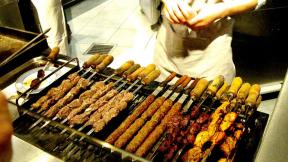
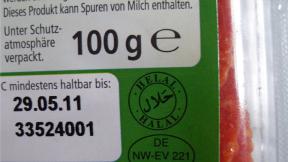
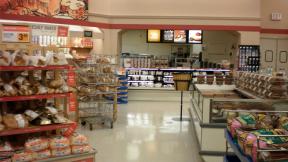
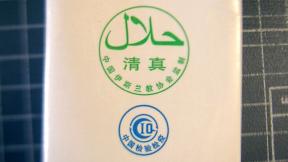



Comments
earn money from Matrix System halal or haram please send me Email on this Emailzamadunya2011@gmail.com
Location
I wish our multibillionaire muslim invest in the food business so we can be in the safe side ,have a peace of mind. the few small store that sell halal products are so pricey.
Location
I wish our multibillionaire muslim invest in the food business so we can be in the safe side ,have a peace of mind. the few small store that sell halal products are so pricy.
Location
I liked your article. Its surprising that inspite of a huge muslim population and muslim consumer market why the manufacturers are not aiming to target it. I'm sure once the halal label is out in market, many muslims will prefer to buy halal labeled porducts and hence will increase the sales of that particular product.One of the reason I can think of is the halal standards are not clearly defined for the manufacturers to follow and many ingredients fall under mushboo category which will not clearly make a product halal.
Location
The lady claiming that "this is the USA and we as Christians...." Good grief! Got news for you! I'm Native American - can't get much more American than that! - and as I have a Muslim guest coming tomorrow, I am researching what would be acceptable to him regarding food ingredients! I have respect for others beliefs, too bad y'all never had any respect for us! Sometimes, non-Christians can behave in a much more Christian fashion, don't you think?
Location
The article was pretty good. However, Jackie, i used to be christian, and its not that Christians don't have someone telling them what is good and bad, did you forget God? It's just most if not all christians in the USA pretty much ignore what God said when it comes to food.
Location
This is the USA and we as Christians are able to eat what we like and enjoy! We do not have someone telling us what is good or bad for us. I understand your religion, but it probably is more a minority here in the USA than Christianity and the food should be purchased at speciality stores. Us as Americans that want to eat healthier etc. shop at places such as Trader Joes!
Location
I agree. Many Muslims do not realize that products that were Halal are now Haram and that some items that were Haram are now Halal because Muslims have called in and spoke to the companies. Good job
Location
Add new comment